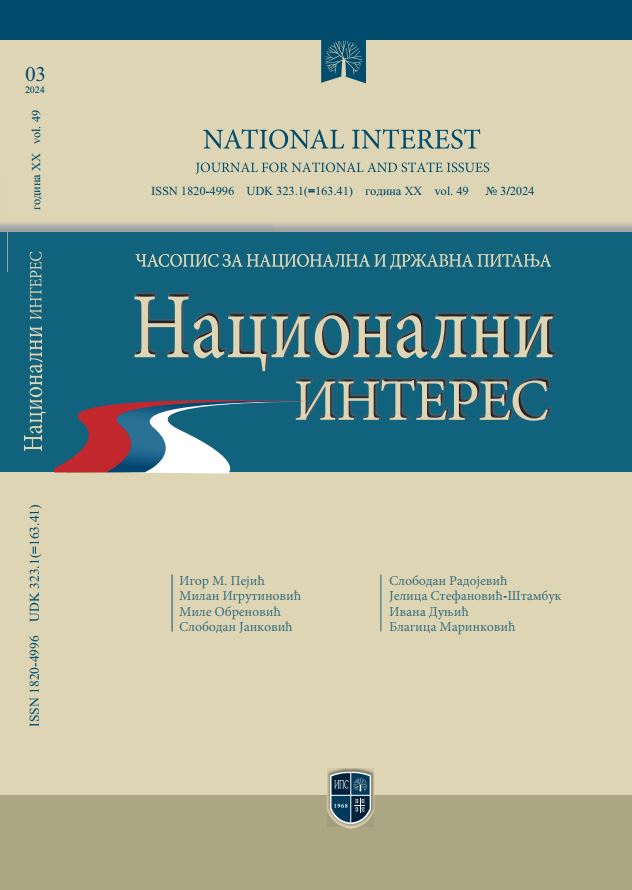THEORETICAL INTERPRETATIONS OF SOCIAL INEQUALITIES IN EDUCATION
Abstract
Exploring the complexities of social inequalities in education involves delving into various theoretical perspectives that offer nuanced insights into the origins, mechanisms, and consequences of educational disparities. Functionalist theories, as advocated by eminent sociologists like Émile Durkheim, Talcott Parsons, and Robert Merton, perceive education as a crucial institution for fostering social cohesion and transmitting societal norms and values. According to this perspective, education plays a pivotal role in moulding individuals to assume specific roles within society, thereby reinforcing social unity and cultural continuity. It is seen as a mechanism through which shared values and knowledge are imparted, contributing to the stability and functioning of society as a whole. In contrast, radical theories, as articulated by scholars such as Louis Althusser, Samuel Bowles, and Herbert Gintis, offer a critical examination of education as a tool for perpetuating existing social hierarchies. They argue that the educational system serves to maintain the dominance of the ruling class while simultaneously suppressing the aspirations of marginalized groups. From this viewpoint, education is viewed as a mechanism of social control, perpetuating inequality by limiting the upward mobility of individuals, particularly those from disadvantaged backgrounds. The emphasis is placed on how the structure of education reinforces and reproduces existing power dynamics within society.The conceptual framework of educational capital, prominently developed by Pierre Bourdieu and Jean-Claude Passeron, provides a comprehensive lens through which to analyse social stratification within educational systems. Their work emphasizes that economic factors alone cannot fully account for the reproduction of social inequalities in education. Instead, they highlight the crucial roles played by cultural capital, social capital, and symbolic capital in shaping educational outcomes.Bourdieu's theory of cultural capital underscores the significance of non-economic resources such as knowledge, skills, and language proficiency in determining educational success. He argues that unequal access to cultural capital perpetuates advantages for privileged social groups, contributing to the reproduction of social inequalities across generations. Building upon Bourdieu's insights, Passeron introduces the concepts of social capital and symbolic capital. Social capital refers to the networks and relationships individuals possess, which can influence their educational opportunities and trajectories. Symbolic capital, on the other hand, pertains to the prestige and symbolic value associated with educational credentials, which can confer advantages or disadvantages in social interactions and life opportunities.
In summary, these theoretical perspectives offer diverse lenses through which to understand the multifaceted nature of social inequalities in education. While functionalist theories underscore education's role in maintaining social order and stability, radical theories unveil its function in perpetuating societal divisions and reinforcing existing power structures. The educational capital framework provides a nuanced picture of how different types of capital interact to shape educational opportunities and outcomes, highlighting the complex interplay between individual agency, social structures, and cultural contexts in determining educational trajectories.In this paper, social inequalities in education are analysed through different theoretical explanations of this problem. Differences in educational success among social groups were investigated, with a focus on the influence of social background. Emphasis is placed on the influence of social origin on the educational achievements and educational aspirations of students, and in that context the most relevant theoretical understandings are indicated.
References
Базић, Јован и Михаило Пешић. 2012. Социологија. Лепосавић: Учитељски факултет у При¬зрену, Ле¬посавић.
Ивковић, Миомир. 1985. Васпитање у друштву. Ниш: Градина.
Ивковић, Миомир. 1990. Образовање и промене. Београд: Стручна књига.
Ивковић, Миомир. 2004. Социологија образовања: одабране теме. Врање: Учи¬тељски факултет.
Марковић Крстић, Сузана. 2010. Социјално порекло студентске омладине, успех у школовању и избор студентских програма високих школа струковних студија. Ниш: Филозофски факултет.
Петровић, Јасмина. 2012. Огледи о образовању у Србији: поглед на скрајнута питања. Косовска Митровица: Филозофски факултет Универзитета у Приштини.
Abraham, John. 2001. „Critique and the Anti-Tribes in Sociology of Education: A Reply to Sara Delamont’s “Anomalous Beasts”.” Sociology 35(2): 561-574.
Bernstein, Basil. 1974. Jezik i društvene klase. Београд: Beogradski izdavačko-grafički zavod.
Boudon, Raymond. 1974. Education, Opportunity, and Social Inequality; Changing Prospects in Western Society. New York: John Wiley & Sons.
Bourdieu, Pierre and Jean Claude Passeron. 1986. Pedagoško djelovanje i simboličko nasilje. Proturječja suvremenog obrazovanja, Zagreb: RZRKSSO.
Collins, Randall. 1971. „Functional and Conflict Theories of Educational Stratification.” American Sociological Review 36(6): 1002-1019. https://doi.org/10.2307/2093761
Dirkem, Emil.1981. Vaspitanje i sociologija Beograd: Zavod za udžbenike i nastavna sredstva.
Fragudaki, Ana. 1994. „Teorije o društvenim nejednakostima u školi.” Teme 17(1-2): 73-89.
Gegel, Lyudmila, Irena Lebedeva and Yulia Frolova. 2015. „Social Inequality in Modern Higher Education.” Procedia – Social and Behavioral Sciences 214: 368-374. https://doi.org/10.1016/j.sbspro.2015.11.662
Ghos, Asim, Nachiketa Chattopadhyay and Bikas K.Chakrabarti. 2014. „Inequality in societies, academic institutions and science journals: Gini and k-indices.” Physica A: Statistical Mechanics and its Applications 410: 30-34. https://doi.org/10.1016/j.physa.2014.05.026
Haralambos, Michael and Robin Heald. 1979. Uvod u sociologiju. Zagreb: Globus.
Ivanov, Jasmina 1999. Obrazovanje i profesionalno – životna afirmacija diplomiranih stu-denata. Niš: Filozofski fakultet.
Jary, David and Julia Jary. 2000. Collins Dictionary of Sociology. Glasgow: HarperCollins.
Jugović, Aleksandar. 2008. „Stigmatizacija kao društveni proces.” Temida 11(2): 5-19.
Mills, Carmen and Trevor Gale. 2007. „Researching social inequalities in education: towards a Bourdieuian methodology.” International Journal of Qualitative Studies in Education 20(4): 433-447. https://doi.org/10.1080/09518390601176523
Milošević Radulović, Lela i Suzana Marković Krstić. 2017. „Social inequality in education analyzed within various theoretical frameworks.” Facta Universitatis, Series: Philosophy, Sociology, Psychology and History 16(1): 25-36. 10.22190/FUPSPH1701025M
Misztal, Barbara. 2001. „Normality and trust in Goffman's theory of interaction order”, Sociological theory 19(3): 312-324. https://doi.org/10.1111/0735-2751.0014
Panayotakis, Costas. 2014. „Capitalism, meritocracy, and social stratification: A radical reformulation of the d Davis-Moore thesis.” The American Journal of Economics and Sociology 73(1): 126-150.
Peet, Evan D., Günther Fink and Wafaie Fawzi. 2015. „Returns to education in devel-oping countries: Evidence from the living standards and measure-ment study surveys.” Economics of Education Review 49(C): 69-90. DOI: 10.1016/j.econedurev.2015.08.002
Petrovski, Vlado. 2011. „Contemporary modern industrial societies and the role of education.” Procedia – Social and Behavioral Sciences 15: 1362-1365. https://doi.org/10.1016/j.sbspro.2011.03.293
Rehbein, Boike. 2018. „Critical theory and social inequality .” Tempo social 30(3): 49-65. https://doi.org/10.11606/0103-2070.ts.2018.145113
Scott, John. 1997. „Class, status, and command: towards a theoretical framework.” Hitotsubashi Journal of Social Studies 29: 73-89.

